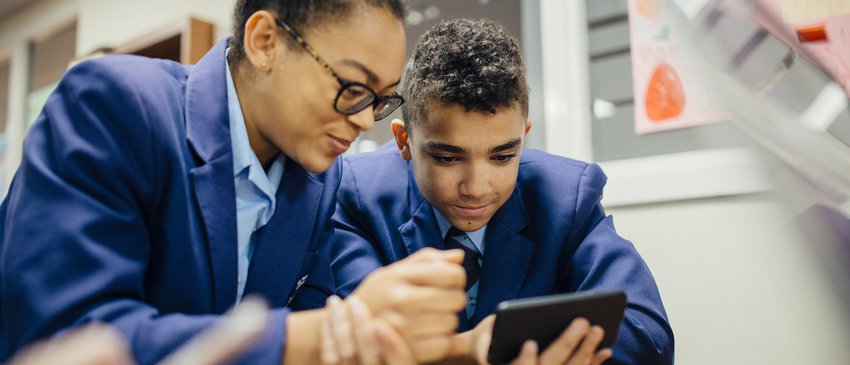Literacy and gender

National and international research has found gender to be associated with literacy engagement. Indeed, our research shows that the link between gender and literacy is deeply complex, with both many issues and many solutions. We continue to explore this through ongoing research but here are some of our findings.
Key statistics around gender
- In 2022, fewer boys than girls said they enjoyed reading (45.6% vs. 54.9%). Boys who received FSMs had the lowest levels of reading enjoyment, with just 2 in 5 enjoying reading.
- More girls than boys said they read daily. Only 1 in 5 (20.6%) of boys who receive Free School Meals (FSMs) read daily, compared with 1 in 3 of girls who don’t receive FSMs.
- More girls than boys said that they enjoy writing in their free time, with over 2 in 5 girls saying this compared with 1 in 3 boys.
- Online communication can help support and empower some groups of young people: in 2022, more boys than girls feel that their online life opens up lots of possibilities for them.
Latest research into gender
-
This report presents findings from a survey exploring young people’s literacy and critical literacy attitudes and behaviours when navigating online environments.Learn more about Insights into young people’s literacy, critical digital literacy, online communication and wellbeing.
-
This report outlines findings from our role models survey, exploring who children look up to, and the impact that having a role model can have on children's reading attitudes.Learn more about Role models and their influence on children and young people's reading.
-
This report outlines findings from our 2022 Annual Literacy Survey, exploring children and young people’s writing engagement following the lifting of all lockdown restrictions in...Learn more about Children and young people’s writing in 2022.
What else we know about literacy and gender
- Nearly 1 in 2 children and young people who identify their gender as other than boy or girl say that they struggle to see themselves in what they read compared with 1 in 3 boys and girls.
- Half (49.9%) of boys who don’t enjoy reading agree that reading on screen is cooler than reading a print book.
- Half of all girls say that poor confidence is a barrier to them achieving their aspirations compared with 2 in 5 boys.

Our work on gender
-
Empower your primary children aged 5 to 7 with the literacy skills they need to imagine their futures, the world they aspire to live in, and their role in shaping it.Learn more about Dream Big.
-
We use the excitement and passion surrounding sport to motivate and inspire young people to improve their literacy skills.Learn more about Sport and literacy.




